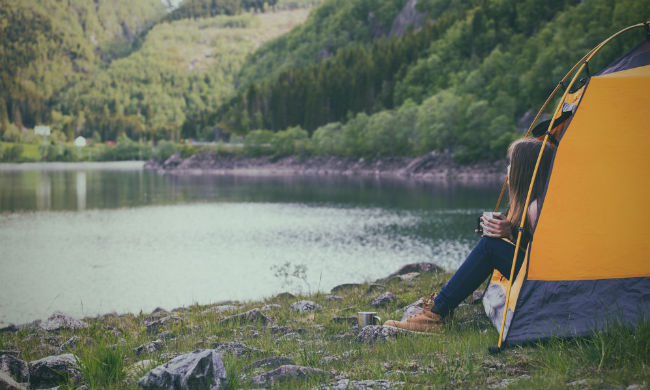The importance of nature is well known and yet economists and politicians continue to downplay the pivotal role that nature plays in human health and well-being. But scientists are now confirming what many people have known all along – that there is no technological substitute for nature. No screeen based device can replace getting off the couch and into the bush. When we underestimate the benefits of nature we do ourselves no favours.
In a story by Jill Suttie: We Know Nature Makes Us Happier. Now Science Says It Makes Us Kinder Too (Yes magazine March 12, 2016) she reports that, New studies show being in nature may increase your willingness to be generous, trusting, and helpful toward others. Says Suttie:
“Even though I’ve always believed that hiking in nature had many psychological benefits, I’ve never had much science to back me up … until now, that is. Scientists are beginning to find evidence that being in nature has a profound impact on our brains and our behaviour, helping us to reduce anxiety, brooding, and stress, and to increase our attention capacity, creativity, and ability to connect with other people.
“People have been discussing their profound experiences in nature for the last several hundred years—from Thoreau to John Muir to many other writers,” says researcher David Strayer, of the University of Utah. “Now we are seeing changes in the brain and changes in the body that suggest we are physically and mentally more healthy when we are interacting with nature.”
While he and other scientists may believe nature benefits our well-being, we live in a society where people spend more and more time indoors and online—especially children. Findings on how nature improves our brains bring added legitimacy to the call for preserving natural spaces—both urban and wild—and for spending more time in nature in order to lead healthier, happier, and more creative lives.
Here are the five —
1. Being in nature decreases stress – Results showed that those who walked in forests had significantly lower heart rates and higher heart rate variability (indicating more relaxation and less stress) and reported better moods and less anxiety than those who walked in urban settings.
2. Nature makes you happier and less brooding – Participants who walked in a natural setting versus an urban setting reported decreased rumination after the walk, a finding that suggests nature may have important impacts on mood.
Gregory Bratman, of Stanford University, believes research results need to reach city planners and others whose policies impact our natural spaces. “Ecosystem services are being incorporated into decision making at all levels of public policy, land use planning, and urban design, and it’s very important to be sure to incorporate empirical findings from psychology into these decisions,” he says.
3. Nature relieves attention fatigue and increases creativity – Today, we live with ubiquitous technology designed to constantly pull at our attention. But many scientists believe our brains were not made for this kind of information bombardment, and that it can lead to mental fatigue, a sense of being overwhelmed, and burnout, requiring “attention restoration” to get back to a normal, healthy state. Being in nature restores depleted attention circuits.
It’s this kind of brain activity—sometimes referred to as “the brain default network”—that is tied to creative thinking, says David Strayer, of the University of Utah.
“If you’ve been using your brain to multitask—as most of us do most of the day—and then you set that aside and go on a walk, without all of the gadgets, you’ve let the prefrontal cortex recover,” Strayer says. “And that’s when we see these bursts in creativity, problem-solving, and feelings of well-being.”
4. Nature may help you to be kind and generous – In a series of experiments published in 2014, Juyoung Lee, GGSC director Dacher Keltner, and other researchers at the University of California, Berkeley, studied the potential impact of nature on the willingness to be generous, trusting, and helpful toward others, while considering what factors might influence that relationship.
I seem to return to my home life ready to be more kind and generous.
5. Nature makes you “feel more alive” –  With all of these benefits to being out in nature, it’s probably no surprise that something about nature makes us feel more alive and vital. Being outdoors gives us energy, makes us happier, helps us to relieve the everyday stresses of our overscheduled lives, opens the door to creativity, and helps us to be kind to others.
With all of these benefits to being out in nature, it’s probably no surprise that something about nature makes us feel more alive and vital. Being outdoors gives us energy, makes us happier, helps us to relieve the everyday stresses of our overscheduled lives, opens the door to creativity, and helps us to be kind to others.
…. there’s something about nature that keeps us psychologically healthy, and that’s good to know … especially since nature is a resource that’s free and that many of us can access by just walking outside the door. Results like these should encourage us as a society to consider more carefully how we preserve our wilderness spaces and our urban parks.
And while the research may not be conclusive, Strayer is optimistic that science will eventually catch up to what people like me have intuited all along—that there’s something about nature that renews us, allowing us to feel better, to think better, and to deepen our understanding of ourselves and others.
“You can’t have centuries of people writing about this and not have something going on,” says Strayer. “If you are constantly on a device or in front of a screen, you’re missing out on something that’s pretty spectacular: the real world.”
For the full story click on the link: Nature makes us happier.
This article was originally published in Greater Good.
And the plus one … we will call it number 6, is the story by Tom Jacobs: One More Benefit of Nature: It Makes You Like Your Body Better (Yes magazine Feb 08, 2018). Researchers say the outdoors can help mute internal criticism. 
“Seriously,” says Jacobs, “New research from the United Kingdom finds strolling in nature—or even looking at photographs of the natural world—leaves people feeling better about their bodies.
In recent years, a series of studies have found that time spent in nature offers a range of benefits, from easing depression to increasing altruism. This latest work suggests it can also mute internal criticism of one’s less-than-perfect figure.”
More at this link: Like your body better



